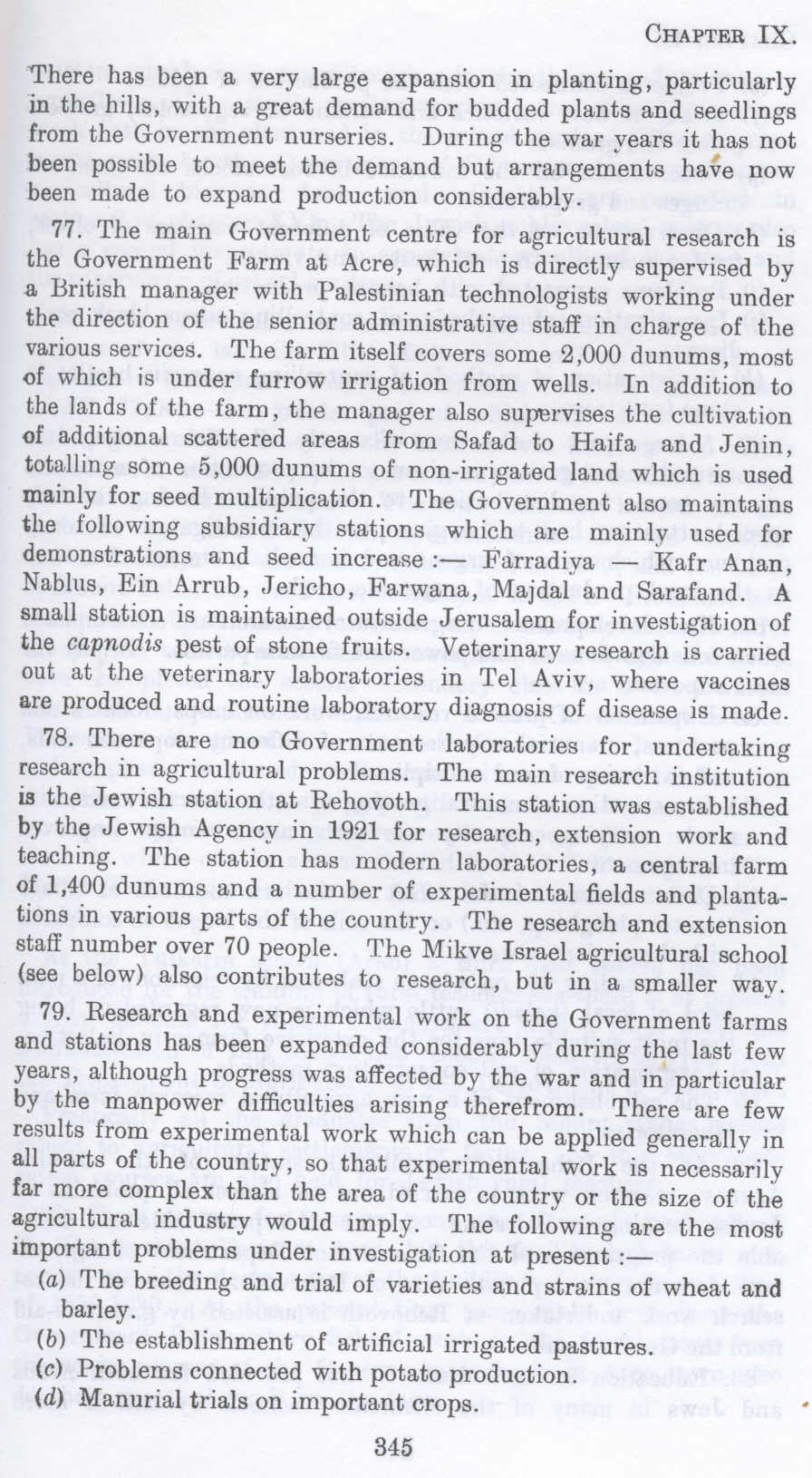| Prev | Next |  |
| Prev | Next |
| PalestineRemembered | About Us | Oral History | العربية | |
| Pictures | Zionist FAQs | Haavara | Maps | |
| Search |
| Camps |
| Districts |
| Acre |
| Baysan |
| Beersheba |
| Bethlehem |
| Gaza |
| Haifa |
| Hebron |
| Jaffa |
| Jericho |
| Jerusalem |
| Jinin |
| Nablus |
| Nazareth |
| Ramallah |
| al-Ramla |
| Safad |
| Tiberias |
| Tulkarm |
| Donate |
| Contact |
| Profile |
| Videos |
British Mandate: A Survey of Palestine: Volume I - Page 345 |
Disclaimer
The above documents, article, interviews, movies, podcasts, or stories reflects solely the research and opinions of its authors. PalestineRemembered.com makes its best effort to validate its contents.


Post Your Comment
*It should be NOTED that your email address won't be shared, and all communications between members will be routed via the website's mail server.
There has been a very large expansion in planting, particularly in the bills, with a great demand for budded plants and seedlings from the Government nurseries. During the war years it has not been possible to meet the demand but arrangements have now been made to expand production considerably.
77. The main Government centre for agricultural research is the Government Farm at Acre, which is directly supervised by " British manager with Palestinian technologists working under the direction of the senior administrative staff in charge of the various services. The farm itself covers some 2,000 dunums, most of which is under furrow irrigation from wells. In addition to the lands of the farm, the manager also supervises the cultivation of additional scattered areas from Safad to Haifa and Jenin, totalling some 5,000 dunums of non-irrigated land which is used mainly for seed multiplication. The Government also maintains the following subsidiary stations which are mainly used for demonstrations and seed increase :- Farradiva - Kafr Anan, Nablus, Ein Arrub, Jericho, Farwana, Majdal and Sarafand. A small station is maintained outside Jerusalem for investigation of the capnodis pest of stone fruits. Veterinary research is carried out at the veterinary laboratories in Tel Aviv, where vaccines are produced and routine laboratory diagnosis of disease is made.
78. There are no Government laboratories for undertaking research in agricultural problems. The main research institution is the Jewish station at Rebovoth. This station was established by the Jewish Agency in 1921 for research, extension work and teaching. The station has modern laboratories, a central farm of 1,400 dunums and a number of experimental fields and plantations in various parts of the country. The research and extension staff number over 70 people. The Mikve Israel agricultural school (see below) also contributes to research, but in a smaller way.
79. Research and experimental work on the Government farms and stations has been expanded considerably during the last few years, although progress was affected by the war and in particular by the manpower difficulties arising therefrom. There are few results from experimental work which can be applied generally in all parts of the country, so that experimental work is necessarily far more complex than the area of the country or the size of the agricultural industry would imply. The following are the most important problems under investigation at present :-
(a) The breeding and trial of varieties and strains of wheat and
barley.
(b) The establishment of artificial irrigated pastures. (c) Problems connected with potato production.
(d) Manorial trials on important crops.
Page 345